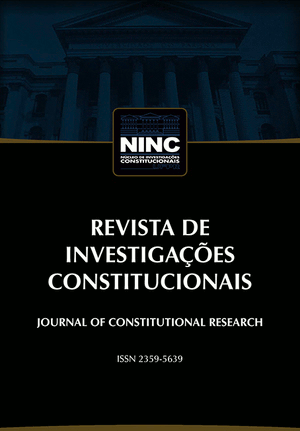Abstract
The debate over the exercise of primary and secondary constituent power is a long-lasting one and is grounded on positions diverging according to the interpretation of constitutionalism and democracy, and to the conception of constitution’s flexibility. In order to safeguard the sacrality of the fundamental Charter at the same time ensuring its flexibility, framers, moreover after WWII, entrenched therein both specific procedures for the exercise of the secondary constituent power and clauses for the protection of constitutional fundamentals. After the exhaustion of the primary constituent power, a relevant role has been played by Supreme Courts, which ensured the enforceability of the abovementioned clauses and procedures, and, in some cases, inferred them in the lack of explicit constitutional provisions. The Brazilian Supremo Tribunal Federal (STF) is among those Courts which had to infer their competence in reviewing constitutional amendments from the unamendability clauses entrenched in the Charter. The analysis, in a comparative perspective, of the STF’s activism is the focus of this article.
Keywords:
constitutional amendments; constitutional core values; Supreme Federal Court; power of judicial review; judicial activism
